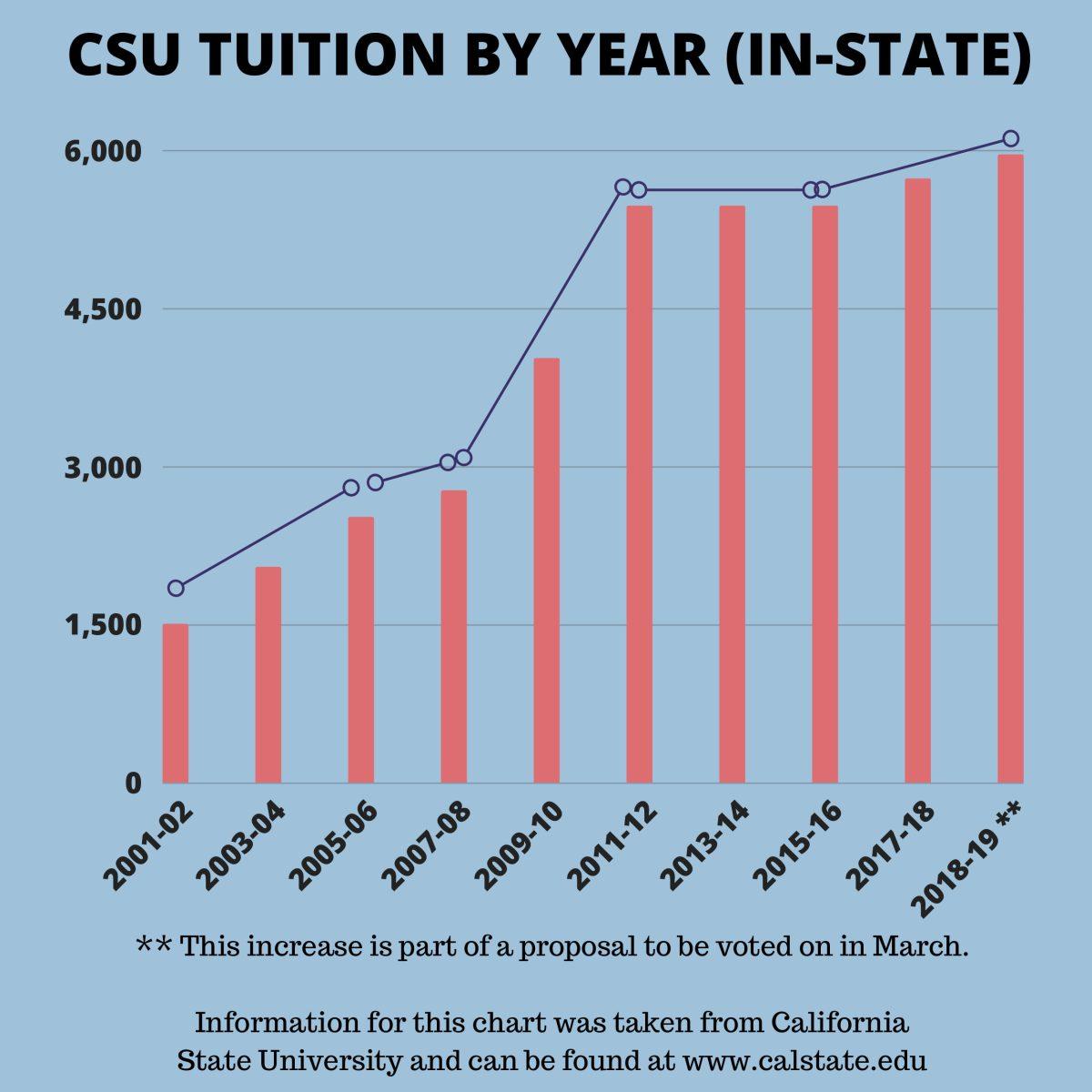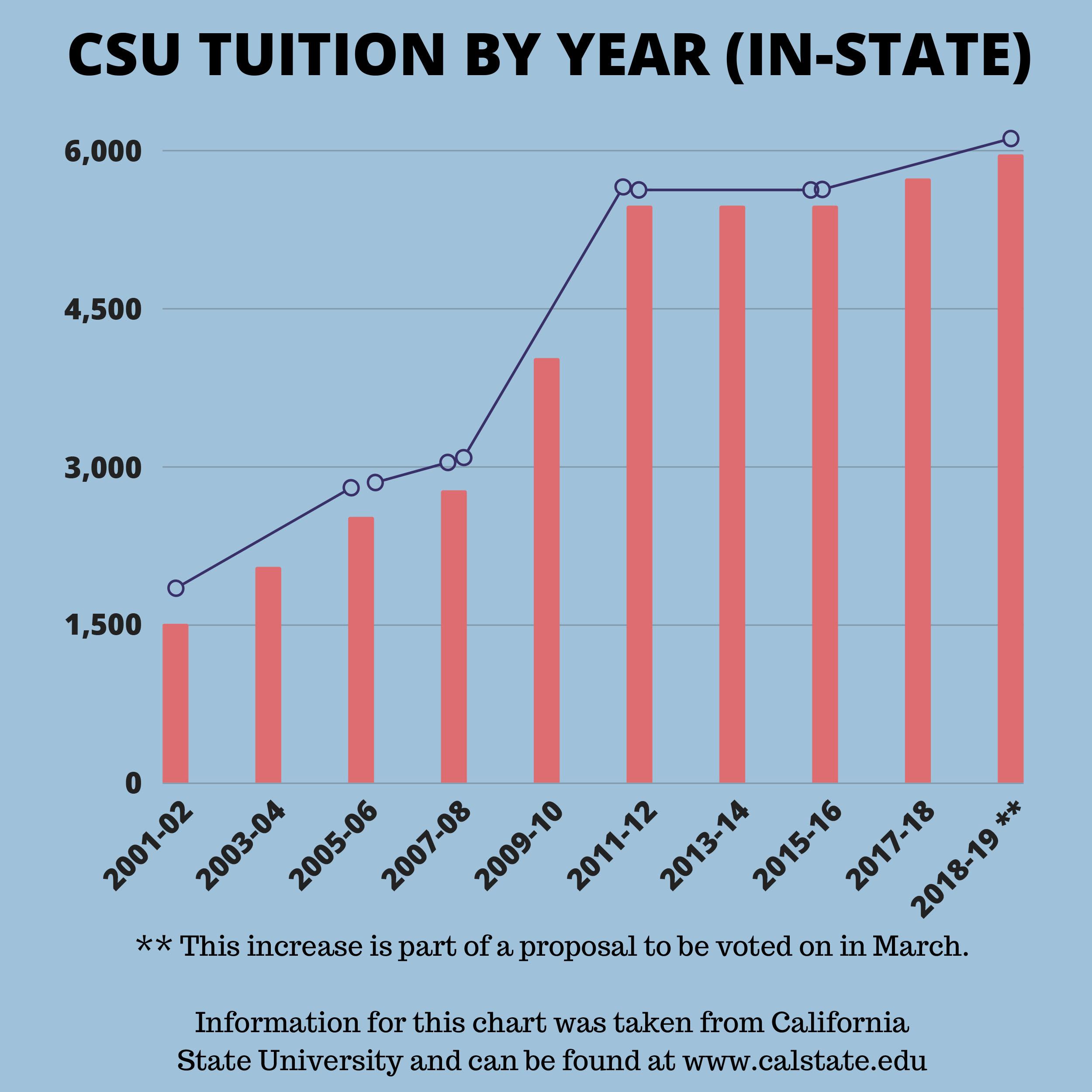For the 2017-18 school year, students had $270 added to their tuition costs. With another proposal from the CSU, this number could go even higher.
California State University Chancellor Timothy White has proposed a $228 tuition increase for in-state, full-time undergraduate students over an academic year, while the price per unit for non-resident students would go up from $396 to $426 and $264 to $284 for quarter campuses.
The CSU Board of Trustees will vote on this proposal at its March 21 meeting in Long Beach. If passed, it would be implemented for fall semester of 2018.
But before the regents move ahead with the proposal, White and others want to get the approval of the California State Student Association.
In a meeting Thursday with officials from the Chancellor’s Office, CSSA representatives asked questions and sought to provide alternatives to this potential increase in tuition. According to CSSA President Maggie White, this tuition increase could negatively affect students financially.
“I feel that a tuition increase would harm affordability for students who don’t receive full financial aid coverage of their tuition and are already struggling to make ends meet,” White said.
In order to meet the state funding requirements, the CSU system has requested a 2018-19 budget increase from the state Legislature of about $282 million. Within this amount, they require $152 million to fulfill mandatory costs such as employee compensation. However, Gov. Jerry Brown has indicated that he will only grant the system $102 million in new funding this year, leaving a deficit of about $50 million just for mandatory costs.
CSU officials are afraid that without increased state funding, and even with the proposed tuition increase, there may not be enough money to fund the Graduation Initiative, which seeks to double four-year graduation rate from 19 percent to 40 percent and achieving a 70 percent six-year graduation rate by increasing classes and taking other steps.
The upcoming academic year represents the second year of a six-year, $450 million investment plan in support of the Graduation Initiative.
According to White, the proposed tuition increase would not go towards helping the CSU’s graduation initiative; rather, it would help to cover university costs.
“This year, the proposed tuition increase is to cover mandatory costs like employee compensation increases including the rising minimum wage, and the rising costs of healthcare and benefits for employees.” White said.
Officials are also concerned about paying for enrollment growth and any work on deferred maintenance.
But student representatives are pushing back at the idea of putting the burden on students to make up these funds.
“I don’t feel that it should be students’ responsibility to pay for those kind of mandatory costs at a public university that is meant to be funded by taxpayers for the betterment of the state,” White said.
The chancellor has stated he and his team will be focusing on securing the state funding that the system needs to avoid the increase or any cuts at the campus level.




































